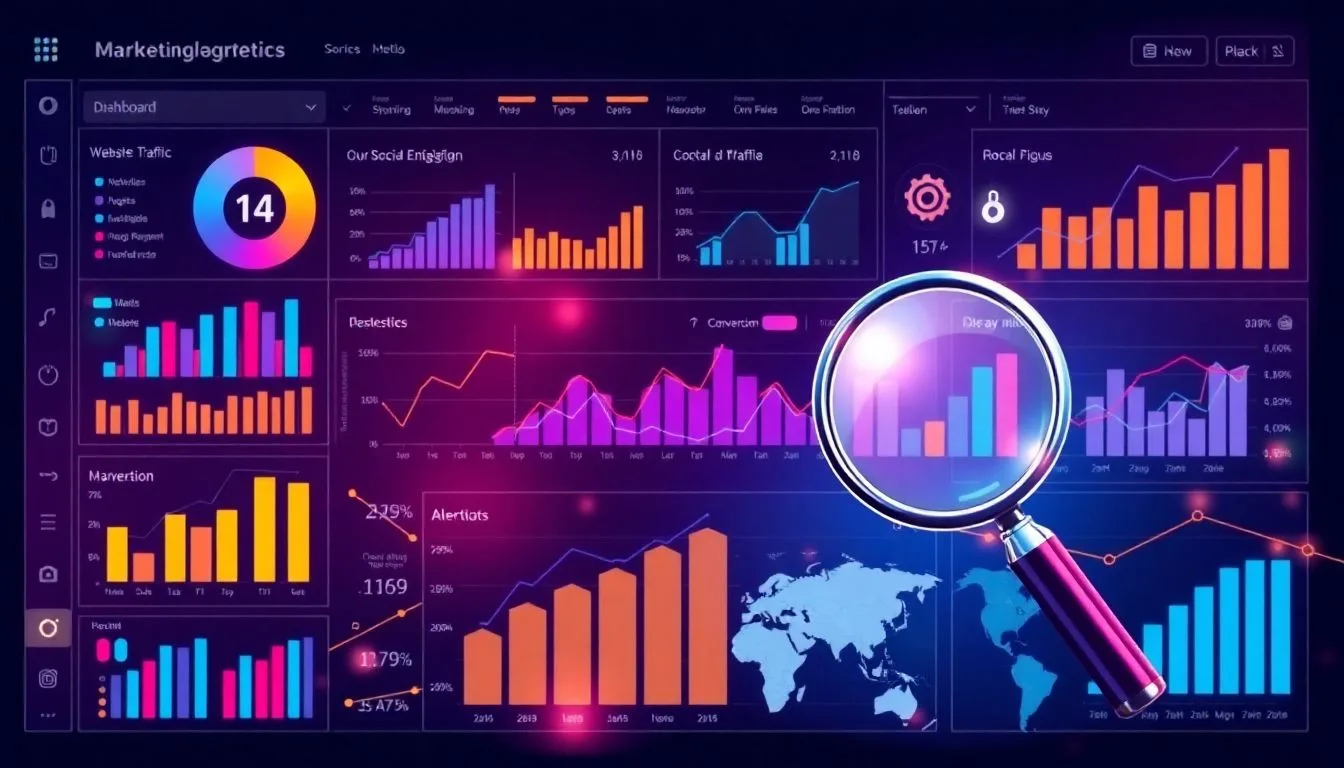Are you throwing marketing dollars into a black hole? Wondering if your efforts pay off? Tracking and analyzing is a must. It’s how you prove your marketing works. The purpose here is simple. We’ll show the best tools for tracking and analyzing your marketing efforts. Let’s get started!
Google Analytics: Your Free Marketing Hub
Google Analytics is super important. It’s your free hub for web analytics. This tool shows you what’s happening on your website. It helps you understand visitor actions.
Setting Up Google Analytics
First, create a Google Analytics account. Then, add your website. Next, get your tracking code. Paste the code into your site’s HTML. Place it before the closing </head> tag. Now, Google Analytics tracks your website data!
Key Metrics to Track in Google Analytics
Pay attention to these key metrics. Website traffic tells you visitor numbers. Bounce rate shows how many leave quickly. Session duration measures time spent on your site. Conversion rates reveal how many visitors become customers. Track these metrics. See what’s working for you.
Analyzing User Behavior
Google Analytics helps you understand user behavior. Find popular pages. See user flows. Identify drop-off points. Use this data to improve your site. Make it easier for visitors to find what they need. Enhance their experience on your site.
Social Media Analytics Platforms
Social media is important, but are you making the most of it? Social media analytics tools can really help. Some are built into the platform, while others are third-party tools.
Native Platform Analytics (Facebook Insights, Twitter Analytics, etc.)
Facebook Insights is valuable. It’s right there within Facebook. Twitter Analytics is similar. These platforms show you how your posts perform. They reveal audience demographics. They are free and easy to use.
Third-Party Social Media Analytics Tools (e.g., Buffer Analyze, Hootsuite Analytics)
Third-party tools offer more. Buffer Analyze and Hootsuite Analytics are examples. These tools offer cross-platform reporting. They often have more advanced analytics. They can save you time and provide deeper insights.
Tracking Engagement and Reach
Engagement is key on social media. Track likes, shares, and comments. Reach measures how many people saw your content. A good strategy boosts both engagement and reach.
Email Marketing Analytics Tools
Email marketing remains vital. Tracking your email campaigns is essential. Email platforms provide tools to analyze your efforts. Understand what resonates with your audience.
Key Metrics to Track in Email Marketing (Open Rates, CTR, Conversion Rates)
Track open rates. See how many people open your emails. Click-through rates (CTR) show how many click links. Conversion rates reveal how many complete a desired action. High rates mean your emails are effective.
A/B Testing for Email Campaigns
A/B test your email subject lines. Try different content. Experiment with calls to action. See what performs best. A/B testing improves your email performance.
Measuring ROI of Email Marketing Campaigns
Calculate your return on investment (ROI). Track revenue from email leads. Compare revenue to your email marketing costs. This calculation shows if your campaigns are profitable.
SEO Tracking Tools
SEO is super important for online visibility. SEO tools monitor your website rankings. They analyze your organic traffic. Make sure people can find you on search engines.
Google Search Console
Use Google Search Console. It’s a free tool from Google. It monitors your search performance. It identifies crawl errors. Submit your sitemaps through it. Fix issues Google finds on your site.
Keyword Rank Trackers (e.g., SEMrush, Ahrefs)
Tools like SEMrush and Ahrefs track keyword rankings. These tools identify opportunities for improvement. They help you see where you rank for important keywords. Use this data to improve your SEO strategy.
Monitoring Backlinks and Domain Authority
Backlinks are links from other websites to yours. Domain authority measures your website’s authority. Track your backlinks. Build high-quality links. Increase your domain authority. This helps you rank higher in search results.
Conclusion
Tracking and analyzing your marketing is not optional. It’s essential for success. We covered Google Analytics, social media analytics, email marketing tools, and SEO trackers. Use these tools to understand your marketing. Make data-driven decisions. Start tracking your marketing efforts today!


Leave a Reply